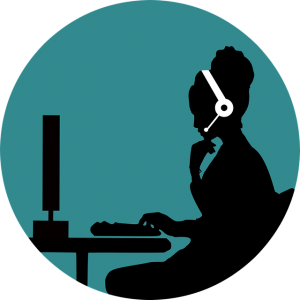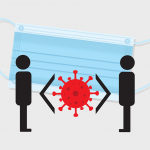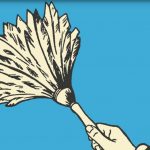Join the Army of COVID Contact Tracers
Infectious disease specialists at the CDC and other organizations are placing an increasing emphasis on the use of contact tracers to rein in a resurgence of the virus as states reopen businesses and reduce social distancing measures. Tom Frieden, president and CEO of the nonprofit Resolve to Save Lives and a former director of the Centers for Disease Control and Prevention, describes contact tracing as a series of “four key actions: test, isolate the infected, contact trace and then follow up with the contacts. And each of those four things needs to be going really, really well and at a massive scale.”
 Good contact tracers have emotional intelligence, close listening skills, caring combined with straight talk and a flair for patient education. Of course, these are also key characteristics that inspire so many Americans to place their trust in nurses. In a country that regards privacy as an unwritten constitutional right, it is essential that contact tracers be capable of inspiring trust, so it is not surprising that boards of public health across the United States try to fill these positions with people who have nursing experience.
Good contact tracers have emotional intelligence, close listening skills, caring combined with straight talk and a flair for patient education. Of course, these are also key characteristics that inspire so many Americans to place their trust in nurses. In a country that regards privacy as an unwritten constitutional right, it is essential that contact tracers be capable of inspiring trust, so it is not surprising that boards of public health across the United States try to fill these positions with people who have nursing experience.
School nurses sidelined by school closures, nurses on furlough due to holds on elective medical procedures and a wide range of former nurses are lending their skills to the massive public health effort.
Massachusetts contact tracer Celia Gillis was clearly drawing on her past as a nurse in Boston when she spoke of her new job to Boston Magazine: “It’s been eye opening. You have to sort of establish a relationship with them before you start asking for names and phone numbers, because sometimes people don’t want to share that information with a stranger. So, you start with a larger conversation. What are their symptoms? What difficulties are they having? What can we do for them? We’re asking so much of them. Like, we just need you to stay home for 14 days. That’s a lot to ask for some people!” She’s helped people obtain medications, food pantry deliveries and even diapers, and says, “By the time you get to the part where you’re asking about contacts, they’re more comfortable with you and they understand that we’re here to help, too, we’re not just trying to get something from them.”
Out-of-work school nurses are often key players on contact tracing teams. Their availability owing to school closures has turned them into a prized commodity, and many are now working as contact tracers for public health departments.
Patty Comeau, a former school nurse in Methuen County, Massachusetts, said that she’s on familiar ground in her new job: “School nursing is very similar to public health nursing in that we manage outbreaks of contagious diseases and we contact parents and we send out notifications.”
With communities attempting to reopen, contact tracers are in greater demand than ever, as their ongoing efforts help to reduce the spread of the virus before it imposes an unmanageable strain on hospital systems.
Looking toward summer, Abram Wagner, research assistant professor of epidemiology at the Michigan School of Public Health, notes, “Robust contact tracing will be a key component of returning to work, school and other aspects of life safely before a vaccine is developed.”
Are you interested in assisting New Jersey’s contact tracing efforts?




